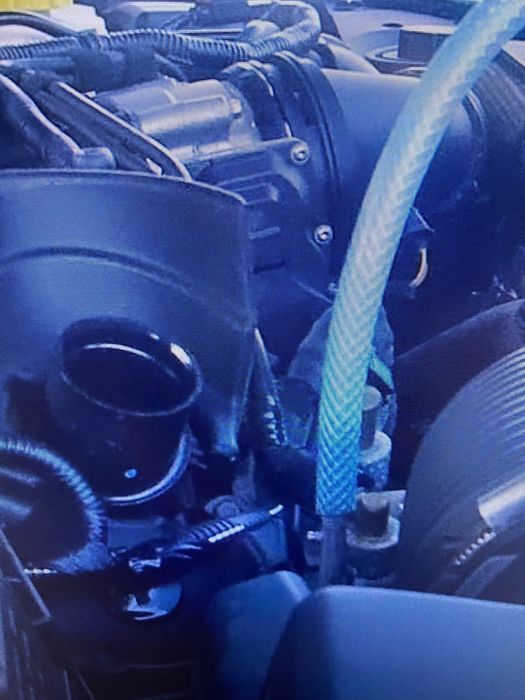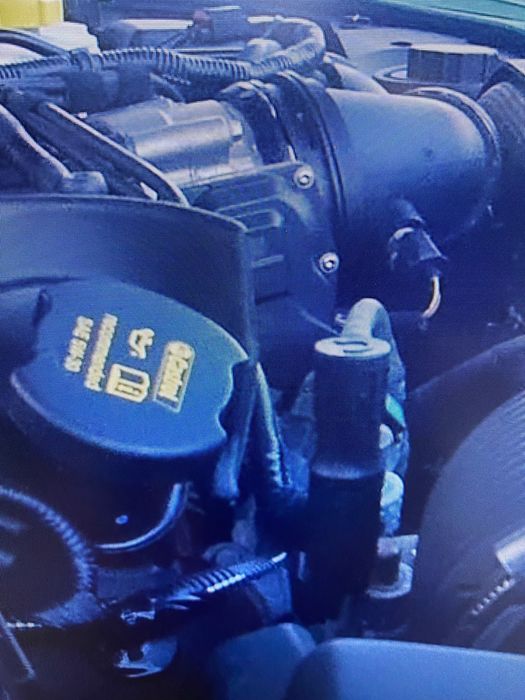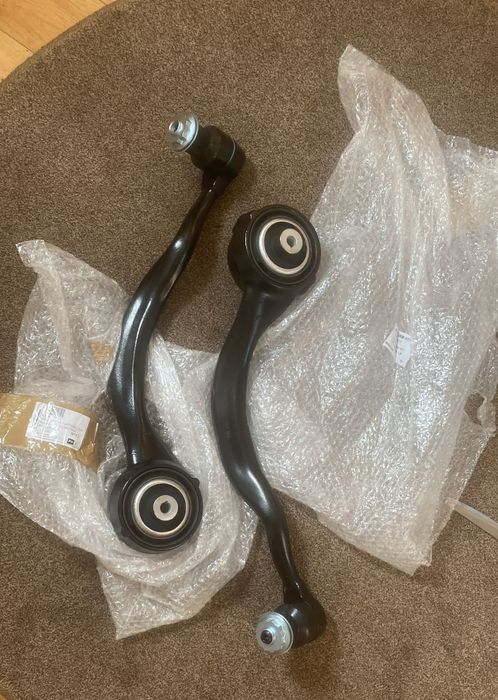 | Home > My Range Rover > My L405 Maintenance and Modifications |
 
|
|
|
| evotime Member Since: 02 Apr 2021 Location: Aberdeenshire Posts: 134 
|
Nah. Already drained it via the sump plug. Sump plug is still in play X5 40d |
||
|
| JayGee Member Since: 27 Jul 2021 Location: London Posts: 3283  
|
So you pulled out the extraction fitting or removed a separate sump plug? There is one for the turbo which gets a bit more out. 2012 TDV8 Vogue (L322) |
||
|
| evotime Member Since: 02 Apr 2021 Location: Aberdeenshire Posts: 134 
|
I pulled oil out of the sump with the pump via the connection just to the left of the oil filler cap see pics. I then removed the sump plug to check what oil was lift in the sump.
|
||||||
|
| evotime Member Since: 02 Apr 2021 Location: Aberdeenshire Posts: 134 
|
So investigated the sloppy ride. All suspension is good.
|
||
|
| MarianaWestminster Member Since: 14 Jun 2018 Location: UK Posts: 701 
|
If you happen to find that document evotime I'd be very grateful if you could share it with me.
|
||
|
| GraemeS Member Since: 06 Mar 2015 Location: Wagga area Posts: 2585  
|
Does the SDV8 sump have 1 or 2 drain plugs? If like the L322's TDV8 sump then only 1 drain plug which drains the turbo reservoir so if the suction tube isn't used then quite an amount of oil will be left in the main part of the sump. However the L322's turbo reservoir doesn't hold 1.5L, being more like 0.5L. |
||
|
| Gremlin500 Member Since: 11 Mar 2022 Location: Newcastle, UK Posts: 1626  
|
@Evotime:
|
||
|
| evotime Member Since: 02 Apr 2021 Location: Aberdeenshire Posts: 134 
|
MarianaWestminster, been searching today. I am pretty sure I found it in the range rover manual but its 11118 pages. Will keep looking. X5 40d |
||
|
| evotime Member Since: 02 Apr 2021 Location: Aberdeenshire Posts: 134 
|
GS, Hmm, not sure. Pretty sure there was only one. X5 40d |
||
|
| evotime Member Since: 02 Apr 2021 Location: Aberdeenshire Posts: 134 
|
G500, Possible lost vacuum from the pipe or as you say feeding into the plastic oil can with limited ventilation caused the issue. X5 40d |
||
|
| Kot Member Since: 10 Mar 2021 Location: broadland Posts: 1292 
|
Is it Vehicle Dynamic Suspension 204-05 Overview starting page 5? Adaptive damping is an electronically controlled suspension system which continuously adjusts the damping characteristics of the suspension dampers in reaction to the prevailing driving conditions. The system is controlled by an Integrated Suspension Control Module. The module receives signals from three accelerometers, four suspension height sensors and other vehicle systems to calculate vehicle state, body and wheel motions and observe driver inputs. These signals are used by the control module to control the damping characteristics of each damper to the appropriate level, resulting in improved body control and vehicle ride. The adaptive damping dampers are oil-filled, gas pressurised mono-tube units. To maintain wheel travel, the rear dampers feature an additional external accumulator. The damping force can be adjusted when the vehicle is being driven by an electronically controlled valve. These dampers provide an improved compromise between vehicle control and ride comfort than a typical passive damper. All the dampers have an electrical connector on the end of the piston rod, in the centre of the top mount. In each damper, the damping adjustment is made by a solenoid controlled variable orifice, which opens up a secondary path for oil flow within the damper. When de-energized, the bypass is closed and all the oil flows through the main (firm) valve. When energized, the solenoid moves the armature and control blade. A spring returns the valve to its closed state when de-energized. The control blade incorporates an orifice which slides inside a housing to open up the bypass as required. With the comfort valve energised and the damper moving into compression, some of the oil flows from the lower portion of the piston through: a hollow piston rod, a separate soft (comfort) valve, a slider housing and orifice, into the upper portion of the damper, thereby bypassing the main (firm) valve. In rebound, the oil flows in the opposite direction. The two valves acting in parallel allow the damper to operate in a softer state. The damper operates between these two boundary conditions. The solenoid in each damper is operated by a 526 Hz PWM (pulse width modulation) current demand from the Integrated Suspension Control Module. When fully energized, the control module applies a 1.5A current to operate the damper in the soft setting. When de-energized (0.0A), the damper transfers to the firm setting. The current varies continuously as required to increase and decrease the damping individually in each of the dampers. And then goes on about the INTEGRATED SUSPENSION CONTROL MODULE and accelerometers, height sensors etc which all play a part. 2018 SE SDV8 4.4 Byron Blue |
||
|
| evotime Member Since: 02 Apr 2021 Location: Aberdeenshire Posts: 134 
|
Yeah I read that this morning, but that's not it. I definitely remember the bit about slower speeds (under 30mph I think) and it was changed in 2016 to stop the float ( I think it was described as).
|
||
|
| evotime Member Since: 02 Apr 2021 Location: Aberdeenshire Posts: 134 
|
Job this time home.
|
||||||
|
| Gremlin500 Member Since: 11 Mar 2022 Location: Newcastle, UK Posts: 1626  
|
@evotime:
|
||
|
 
|
|
| All times are GMT |
< Previous Topic | Next Topic > |
Posting Rules
|
Site Copyright © 2006-2025 Futuranet Ltd & Martin Lewis
![]()




